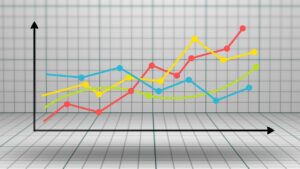Did Labor Day Make A Difference For The Legal Profession?
Times change, and the profession needs to be able to change with these times.
 For many people, Labor Day was a day off, a day away from the workplace environment. And given various labor strikes and disputes presently underway (strikes here in Tinseltown are ongoing), threatened, or resolved, it was a day to think about how work fits into life. For too many of us, it’s all about how life fits into work, and maybe that’s not the paradigm for many people anymore.
For many people, Labor Day was a day off, a day away from the workplace environment. And given various labor strikes and disputes presently underway (strikes here in Tinseltown are ongoing), threatened, or resolved, it was a day to think about how work fits into life. For too many of us, it’s all about how life fits into work, and maybe that’s not the paradigm for many people anymore.
The pandemic put a pause button, if not a full-stop button, on how people view their work, and that hasn’t been limited to hourly, nonexempt workers. It’s been a time of reflection for our profession too. And the lingering question is how to better integrate work into life instead of the other way around.
WFH has been the buzzword (buzz initialism?) for many people over the past several years, and people who have learned, to their delight, that they don’t need to be in the office five days a week, or perhaps any day of the week. No stress about commuting, no worry about childcare or elder care arrangements, and being able to do the same amount of work, if not more, without needing to physically be in the workplace. Granted, there aren’t any “water cooler” conversations, and for some there’s the fear of missing out. Some firms think that physical presence is necessary, but others don’t. A hybrid work arrangement is something that some employers are starting to embrace, stating that there should be a certain amount of time on site, but it doesn’t have to be all the time.

Not All Legal AI Is Created Equal

As a recent Bloomberg report noted, law firms of the future are going to be different in three critical ways.
The first is AI and how it is already impacting law firm practice. The second is how lawyers will be trained and utilized. If AI can correctly draft documents and pleadings (assuming facts not in evidence, given that public snafu of several months ago), then the skills that lawyers need will be different, with an emphasis on critical thinking (we should already have that) and the effective use of the AI technology.
The last difference that the Bloomberg report mentions is law firm structure. Does anyone envision that law firm structure will morph into something different (e.g., that nonlawyers can be a part of that structure)? Given the reluctance of law firms and the bar associations regulating them, any change in structure seems unlikely any time soon, experiments in Arizona and Utah notwithstanding. Do law firms have sufficient financial resources to invest in AI and other technologies needed in the future on their own? To be determined.
So, how are law firms and corporate legal departments going to handle the reluctance of some lawyers (maybe not all, but at least a goodly handful) to return to the office? It’s the RTO versus WFH conundrum. One way could be to adapt technology that the younger lawyers prefer to use — texting, as opposed to the old emails that we dinosaurs grew up on, for example. I remember when email was the new way to communicate. Even if texting doesn’t prompt a return to work, it does show that there’s an understanding of younger lawyer preferences. It is a start, albeit a slow one.
Sponsored

Trust The Process: How To Build And Manage Workflows In Law Firms

How Savvy Lawyers Build Their Law Firm Rate Sheet

A Law Firm Checklist For Successful Transaction Management


How To Build And Manage Your Law Firm Rate Sheet
One Biglaw firm is implementing a tool called “Colleague Connect,” which allows people to know where colleagues are. Although it seems a little Big Brother-ish, the goal is to help lawyers connect in real time, regardless of whether they are working a hybrid schedule, working from home, or working in the office all the time. Sure beats that demeaning “bed check” we dinosaurs had and the creative(?) steps we all took to thwart it.
Productivity is down, but rates are rising. According to this report, the annualized average of billable hours for lawyers for the first six months of 2023 is under 1,550 hours. Cringeworthy? Depends on your point of view.
For partners whose income depends upon associates churning hours and hours of billable time, that number is troubling. But for those associates, who may well want to have a life outside of the law firms, that number may signal that it is possible to have a work-life balance.
Remember that we dinosaurs are from a different time (maybe even a different planet), and what has mattered to us during our careers may not have the same value that the younger lawyers prize. There’s nothing wrong with that. Times change, and the profession needs to be able to change with these times. Change is never easy, and our profession is loath to change unless forced to do so.
In a classic Jack Benny skit (Google him) whose comedic persona was a skinflint, he was confronted by a robber who demanded, “Your money or your life.” Benny paused for some seconds (audience in hilarity) before responding, “I’m thinking it over.” And that’s what a lot of the younger lawyers are doing: they are thinking over the tradeoffs between the profession and the personal. There’s been an explosion of stress-related mental health issues. Changing how work happens may be one way to help.
Sponsored

Not All Legal AI Is Created Equal


How To Build And Manage Your Law Firm Rate Sheet
 Jill Switzer has been an active member of the State Bar of California for over 40 years. She remembers practicing law in a kinder, gentler time. She’s had a diverse legal career, including stints as a deputy district attorney, a solo practice, and several senior in-house gigs. She now mediates full-time, which gives her the opportunity to see dinosaurs, millennials, and those in-between interact — it’s not always civil. You can reach her by email at [email protected].
Jill Switzer has been an active member of the State Bar of California for over 40 years. She remembers practicing law in a kinder, gentler time. She’s had a diverse legal career, including stints as a deputy district attorney, a solo practice, and several senior in-house gigs. She now mediates full-time, which gives her the opportunity to see dinosaurs, millennials, and those in-between interact — it’s not always civil. You can reach her by email at [email protected].







